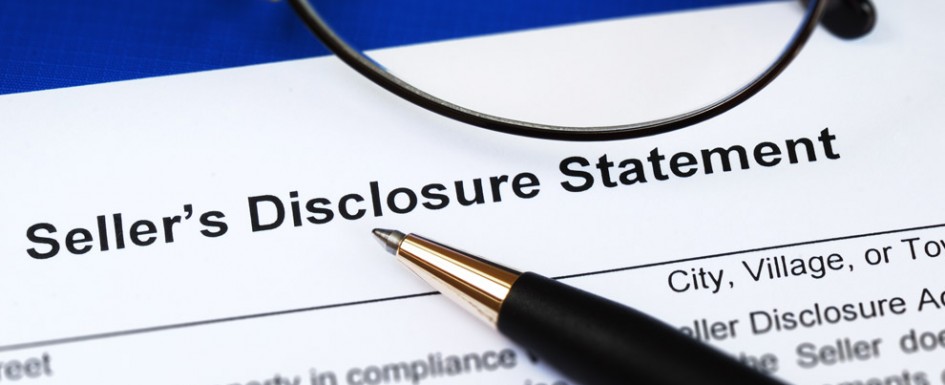One of our core services at TheOnsiteManager.com.au is to assist managers selling properties within their complex. This is a vital service for managers as it allows them to grow and retain their letting pool, compete and guard against outside agents, and generate additional (and considerable) revenue through sales commissions. To this end, we provide all the tools, databases, contracts and paperwork needed by the manager. We also allow the manager to market the sale on all the major portals around the country. We don’t charge any commission (at all!) to do this which makes our service hugely popular with over 370 managers engaging our agency for marketing. And why wouldn’t it be, when you consider selling a listing isn’t that much different to renting one. There’s one recurring question, however, that first-time selling managers ask me when they come on board: How do I acquire the disclosure statement for the sales contract?
That’s an interesting question, how do you get a disclosure statement?
It’s the lot owner’s responsibility to provide the disclosure statement to their agent. When completing a POA Form 6 (Part 4.4) the on-site manager generally includes a condition to the effect that “The client authorises the agent to order, and sign, the Body Corporate Disclosure Statement for the purposes of contract preparation and presentation to the buyer. The Body Corporate Statement will be ordered at the Client’s expense”.
In order to procure the disclosure statement you can start by contacting the Body Corporate management company. If the listing is in your own complex, you’ll no doubt already know who this is. If not, ask your vendor for their last BC minutes or fee statement, and this will tell you who the company is. It might pay to reach out to this company and just ask them how quickly and how much a disclosure statement will cost from them and give them a heads-up that you’ll be needing one soon.
Keep in mind that the Disclosure Statement can’t be more than 1 month old, so there’s no point getting this statement prepared from the outset as the sales process will probably be longer than 30 days. Instead – get a copy of the most recent BC Levy Notice (hopefully showing a zero balance) from the owner, along with their latest Water and Rates bills, also all paid up (hopefully!). These will furnish your prospective buyer with evidence of the outgoings and the account standings at the time of the inspection, without having to spend money on a disclosure statement from the outset.
Also get a copy of the BC Financials and Minutes for the previous year and while you’re speaking to buyers you can make mention of all the things that have been paid for in the building. “We just painted the entire building six months ago, the lifts have all just been upgraded they’re good for another 20 years, the sinking fund is flush with cash, etc, etc”. Being an onsite manager, you’ll be armed with far deeper knowledge of the operations of the body corporate and the building than an outside agent, so use this when you’re selling! Buyers will be impressed you have such a deep knowledge of the complex. Likewise, your knowledge of rentals within the complex will dwarf that of outside agents, so be sure to explain all about the management situation in the complex – as an investor, it’s refreshing to encounter an agent who understands the needs of investors – few real estate agents seem to be able to do this in my experience.
When presenting this information to the buyer, you can explain that you will, of course, have prepared a full disclosure statement from the Body Corporate, but it can’t be older than 30 days so you’ll do this and have it attached to the contract of sale. If you’ve had such a statement prepared in the past, it might pay to show a copy of this to the buyer also so they can see an “INDICATION ONLY” of what to expect. All-in-all, the statement should only take 3 days to prepare so it shouldn’t cause any real problems for genuine buyers.
An interesting strategy I’ve seen managers use very effectively, is to present the buyer with an ‘Offer Document’. This is a very simple and unimposing 1-page document that allows the buyer to jot down their name, postal address, email, phone number, and the details of their solicitor along with how much they’d like to sign the contract for. You can whip this out on the spot and, although it’s not legally binding, in the mind of the buyer, it implants them into the sales process and gives you a stop-gap-measure while you prepare the sales contract and disclosure statement and get these out to the buyer and their solicitor for signing. It can also ensure your sales contract is nice and clean without pages of crossed out offers scrawled all over it.
Preparing the sales contract is one of the big psychological barriers new managers have to selling in their complex, but it isn’t difficult or complicated. RealWorks will deliver a perfectly formatted sales contract using the latest QLD Law Society template in a matter of moments, and a good Body Corporate management company will produce your disclosure statement quickly and affordably. It’s not as difficult as you might think. Good luck!
Special thanks to my own onsite manager: Heather of The Nouvelle; for helping me put this article together.
